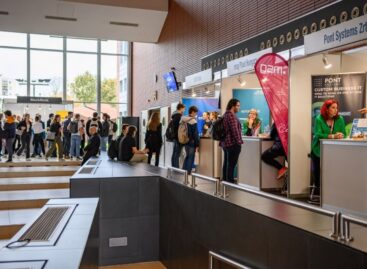Magazine: Famine, malnutrition and solvent demand
Throughout the course of history, numerous experts have examined the relationship between food production and population growth. Last time it was at the OECD Conference for Agriculture Ministers that the representatives of participating countries dealt with the question. Fact is that the world has never before produced as much food as today. The productivity of agricultural production has been growing rapidly in the past couple of decades. In the United Kingdom average wheat production per hectare grew from 0.5 to 2 tons in the thousand years leading up to the early 20th century.
In the last 40 years it grew from 2 to 6 tons. In the case of meat, we can see that with grazing animal farming the volume of meat produced only grew by 10 percent in the last 40 years, but pork production increased by 240 percent since the introduction of intensive farming technologies. When people are starving today, the reason is not the lack of food but the lack of income. Fighting poverty is a very important task, but in the developing world famine and malnutrition cannot be ended without solving the problems in the organisation and management of the economy.
Developing the agricultural sector is a must, but agriculture alone is unable to end famine: people need money to buy the food products they need. Where environmental conditions are not favourable for food production, it is better to focus on importing food. Global trade is developing: from the cereal need of underdeveloped countries only 8 percent came from import in 1970 – this ratio was 17 percent in 2003. The Earth’s population is growing dynamically, but based on the facts mentioned above OECD agricultural ministers are convinced that humankind will have enough food at its disposal in the future.
Related news
Related news
The Store of the Future opens again at the SIRHA Budapest exhibition! (Part 1)
🎧 Hallgasd a cikket: Lejátszás Szünet Folytatás Leállítás Nyelv: Auto…
Read more >Gross from 600 thousand to 1.5 million: numbers also reduce the anxiety of career starters
🎧 Hallgasd a cikket: Lejátszás Szünet Folytatás Leállítás Nyelv: Auto…
Read more >






